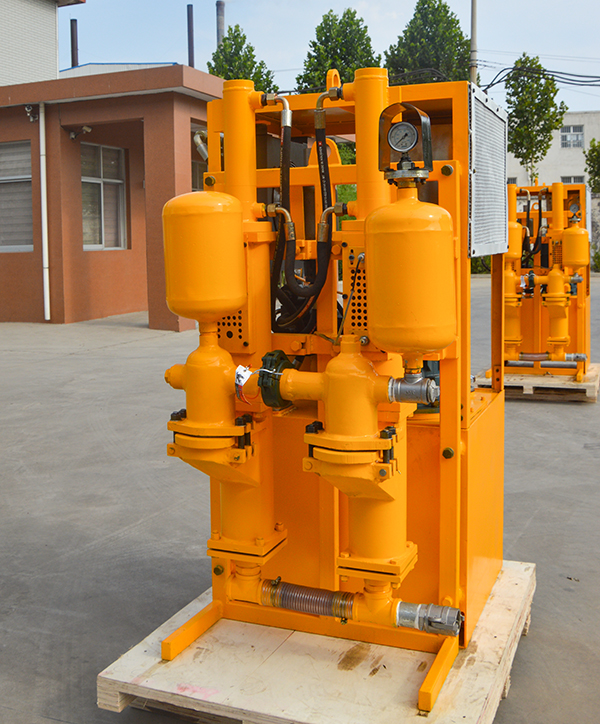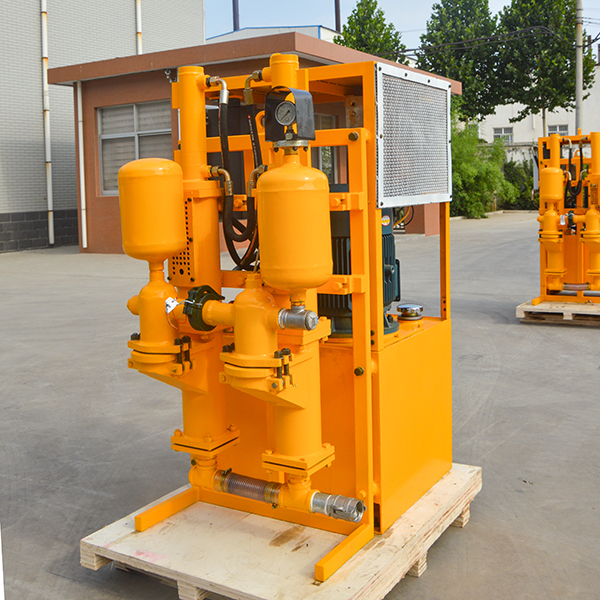Grout pump for building construction
A grout pump is a machine designed to pump grout (a mixture of cement, sand and water) into the interior spaces or voids of buildings. Specifically designed to handle high-pressure applications, these pumps are capable of precisely injecting grout into areas such as foundation cracks, post-tensioned pipes, precast concrete joints and more. Grout pumps are available in various sizes and configurations to meet different construction requirements.

Grout pumps operate on the positive displacement principle, using a piston or plunger mechanism to generate pressure to force grout through a delivery system. The grout mix is usually loaded into a hopper or storage tank, from where it enters the pump chamber. As the piston or plunger moves back and forth, it compresses the grout, forcing it through the discharge tube or hose and into the desired area.
Benefits of grout pumps:
1. Efficiency: The grout pump significantly improves construction efficiency by simplifying the grouting process. They eliminate the need for manual labor, reducing time and effort while ensuring consistent and controlled grout flow.
2. Precision: Grout pumps provide precise control over grout flow, allowing workers to precisely target specific areas, voids or cracks. This precision ensures thorough grouting, minimizing the risk of structural problems in the long run.
3. Increased strength: The high-pressure pumping action of the grout pump helps achieve better compaction, resulting in a stronger and more durable structure. Forced grouting fills voids, strengthens foundations, and increases the overall stability of buildings.
4. Versatility: The grout pump can handle various types of grout mixtures, including cement grout, epoxy grout, and chemical grout. This versatility allows it to be used in a wide range of construction projects, from residential buildings to large infrastructure developments.

Application of grout pump:
1. Foundation restoration: Grout pumps are widely used in foundation restoration and reinforcement projects to inject grout into voids or cracks to reinforce and stabilize foundations.
2. Tunneling and mining: Grouting pumps play a vital role in tunneling and mining operations where they are used to fill voids and protect rock formations.
3. Precast Concrete: Grout pumps help fill joints and connect precast concrete elements, ensuring a strong bond and structural integrity.
4. Post-tensioning: The grout pump is used to inject grout into the post-tensioned pipes, providing corrosion protection and enhancing the load-bearing capacity of the structure.
Grout pumps are an indispensable tool in the construction industry, providing a reliable and efficient method of injecting grout into structures. Their ability to provide precise and controlled grout flow, increase strength, and improve construction efficiency makes them an important component in construction projects. As the construction industry continues to evolve, grout pumps will continue to be an important asset, helping to create durable and resilient structures.
